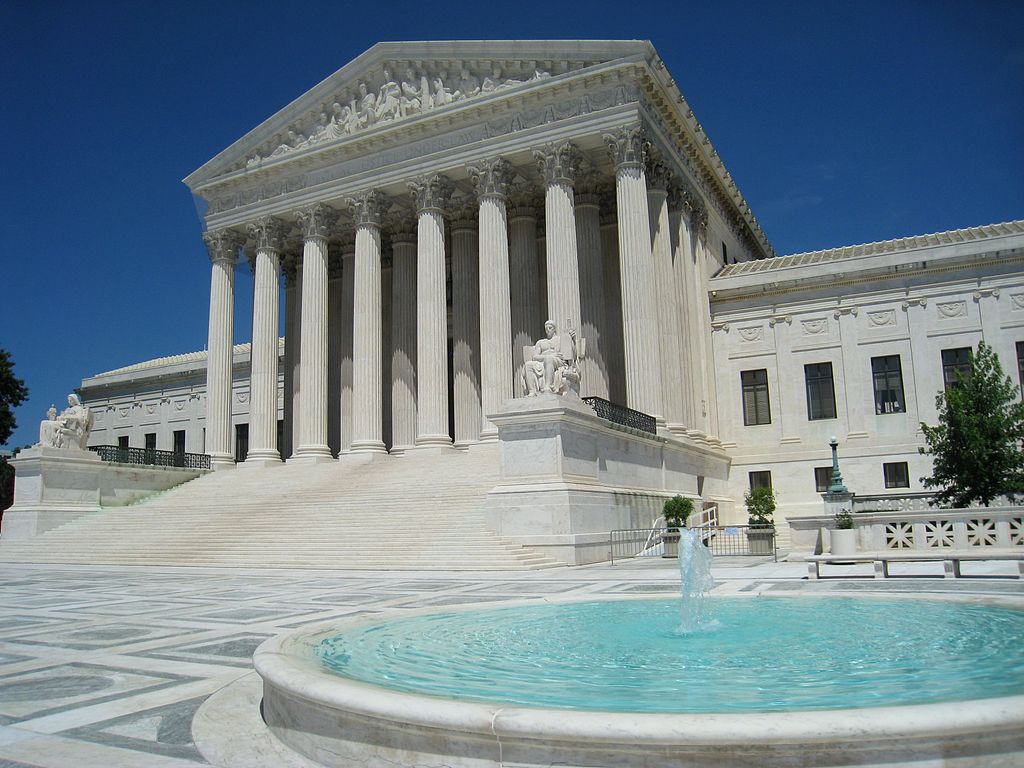Independent State Legislature Theory Is a Threat to Democracy
And the Supreme Court will hear a case being brought on the grounds that this theory is correct.
The so-called “independent state legislature” theory has recently emerged as the latest threat to democracy in America. Typical of the reaction is an article by the well-known election expert Rick Hasen in Slate and bearing the headline: “It’s Hard to Overstate the Danger of the Voting Case the Supreme Court Just Agreed to Hear.”
What is the independent state legislature theory and what is the case that causes such alarm among democracy advocates? The ISL is based on a reinterpretation of two clauses in the US Constitution, the Elections Clause (Article 1 Section 4) and the Presidential Electors Clause (Article II Section 1). The first of these states:
The Times, Places and Manner of holding Elections for Senators and Representatives, shall be prescribed in each State by the Legislature thereof; but the Congress may at any time by Law make or alter such Regulations, except as to the Places of chusing [sic] Senators.
The second of these clauses refers to the appointment of presidential electors:
Each State shall appoint, in such Manner as the Legislature thereof may direct, a Number of Electors, equal to the whole Number of Senators and Representatives to which the State may be entitled in the Congress:
The traditional interpretation of the two clauses is that they envision that the manner of the election will be established through a normal legislative process—including the opportunity for a veto by the governor and review by the courts. In some states, they could also be established by the voters directly, through a referendum.
By contrast, proponents of the independent state legislator theory argue that when it comes to the management of federal elections state legislatures can do whatever they want to. Under this theory, the state executive and judicial branches have no role to play. As an analysis from the Brennen Center notes, “When it comes to federal elections, legislators would be free to violate the state constitution and state courts couldn’t stop them.”
North Carolina legislature then appealed the state Supreme Court’s decision to the U.S. Supreme Court. The core of is argument is based on the independent state legislature theory:
The Elections Clause vests state legislatures with authority to set the rules governing elections, not state courts.
Recently the U.S. Supreme Court announced that it would consider the North Carolina appeal. This would suggest that at least four of the justices are sympathetic to the independent legislature argument. In previous U.S. Supreme Court decisions, a minority of justices opposed efforts to isolate election administration from efforts to use it for partisan advantage. The concern is that with the three Trump justices that minority may have become the majority.
Given this concern, why would the authors of the U.S. Constitution have turned over the process of voters choosing legislators to the legislators themselves? That would seem to be the ultimate conflict of interest. Particularly if a state legislator has ambitions of moving to the federal legislature, and therefore interest in creating safe seats serves that would serve them well in a future election.
Because Moore v. Harper is a gerrymandering case, most of the initial attention is directed at its potential effect on efforts to get partisan politics out of the redistricting process — specifically, the impact it could have state courts authority to reject gerrymandered redistricting plans. Since the majority on the Wisconsin Supreme Court has shown no interest in fair districts, it might be concluded that the independent state legislature theory is irrelevant to Wisconsin.
Here is very recent example of why giving state legislators unaccountable control over elections is so dangerous to the cause of democracy. Following the 2020 presidential election, Donald Trump and some of his associates tried to convince Republican legislatures in states that Biden won to take control of the ballots and reverse the election results. In every case they failed. Adoption of the independent state legislature principle would seem to make such a strategy far easier.
Essentially, adoption of the independent state legislature principle would send a clear message to voters: that the Supreme Court is not just conservative; it is actively hostile to the interests of voters and the time-honored idea that the majority rules. Isn’t that a crucial part of being a democracy? Allowing politicians to set the rules in favor of themselves and their allies would seem diametrically opposed to the framers’ obsession avoiding the rule of a tyrant.
If you think stories like this are important, become a member of Urban Milwaukee and help support real, independent journalism. Plus you get some cool added benefits.
Data Wonk
-
Life Expectancy in Wisconsin vs. Other States
 Dec 10th, 2025 by Bruce Thompson
Dec 10th, 2025 by Bruce Thompson
-
How Republicans Opened the Door To Redistricting
 Nov 26th, 2025 by Bruce Thompson
Nov 26th, 2025 by Bruce Thompson
-
The Connection Between Life Expectancy, Poverty and Partisanship
 Nov 21st, 2025 by Bruce Thompson
Nov 21st, 2025 by Bruce Thompson




















If this goes down the way the oligarchs and Thomas, Scalia, et al. have planned for, the rCons will $hit the bed to soil the sheets on the American experiment.